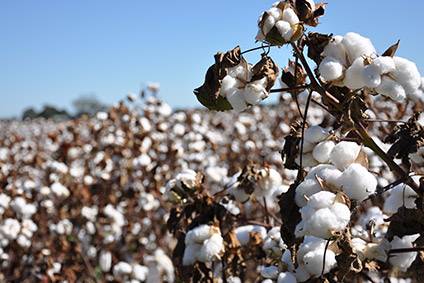
The world’s top fashion brands and retailers are being urged to commit to sourcing cotton responsibly and at scale in a bid to tackle the extreme poverty that lies at the heart of so many of the fashion industry’s social issues.
The call to action was led by Chessa Nilsen, senior buyer and sustainability manager at European menswear chain Dressmann, during last week’s Textile Exchange Sustainability Conference in Milan.
During the ‘United by Action: Accelerating sustainability in textiles and fashion’ session, Nilsen highlighted how Dressman is now one of the biggest fashion retailers of Fairtrade cotton, and encouraged other industry colleagues to follow suit. She addressed the company’s approach to price and quality, and how Fairtrade certification offers value addition as Dressmann works towards becoming a more responsible retailer.
“Based on our current sales volumes, we have received the status of being the world’s largest fashion buyer and retailer of Fairtrade certified cotton,” Nilsen said. “But we also recognise that on a global scale, we are small, and in order to make an impact on the lives of cotton farmers, more and larger brands need to commit. That’s why we hope that one or more brands will take over our title to help move Fairtrade certified cotton into the mainstream.”
The Norwegian owned menswear chain has 475 stores in seven European countries and its parent company, Varner, encompasses eight chains and more than 1,500 shops. Based on the low-cost retailer’s public commitment to drive real change through volumes, the company chose to convert its entire basic T-shirt and basic underwear ranges to Fairtrade cotton.
Cotton purchased on Fairtrade terms means that the farmers get a better price as well as extra resources to invest in sustainable farming. In addition, Fairtrade guides certified cotton co-operatives on how to cope with the impact of climate change and has extensive requirements to limit the agricultural impact on climate and the environment.

US Tariffs are shifting - will you react or anticipate?
Don’t let policy changes catch you off guard. Stay proactive with real-time data and expert analysis.
By GlobalDataDressmann will start to roll out T-shirts, boxers, and socks in Fairtrade certified cotton from January 2018. The cotton is grown in India by small-scale farmers who are members of Fairtrade-certified cooperatives. The garments will go on sale in all 500 Dressmann stores across Norway, Sweden, Finland, Denmark, Iceland, Austria and Germany.
By absorbing the price differential, the retailer has been able to continue to offer the same quality of product, with an additional value of Fairtrade certified cotton for the same price. The company believes that one aspect of being a responsible retailer is to make sustainably sourced products accessible, not an exclusive luxury commodity.
“When we signed the Cotton Communique in 2017, we were ready to fulfil our commitment to sourcing 100% of our cotton from sustainable sources much earlier than the 2025 deadline. We just needed to identify what our options were, and the race was on.
“We decided that we wanted to include Fairtrade certified cotton in our product range because we also felt that it delivered the most value in terms of impact toward making a difference. Also, the Fairtrade certification process gives an extra credibility, that we felt was easy to communicate to the consumer,” Nilsen added.



